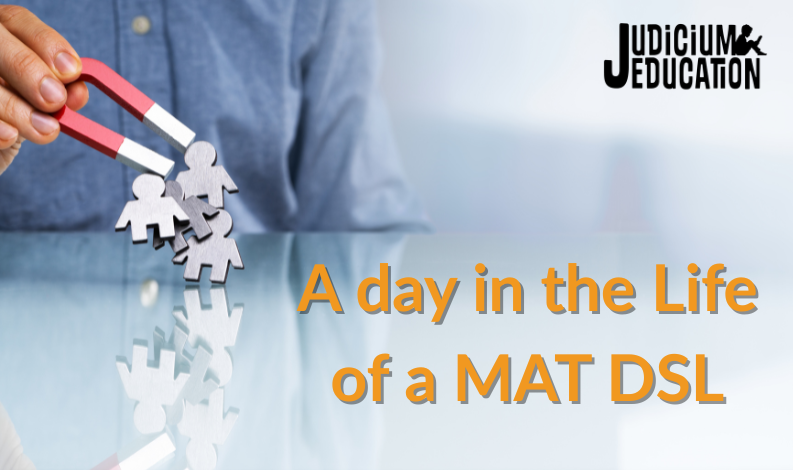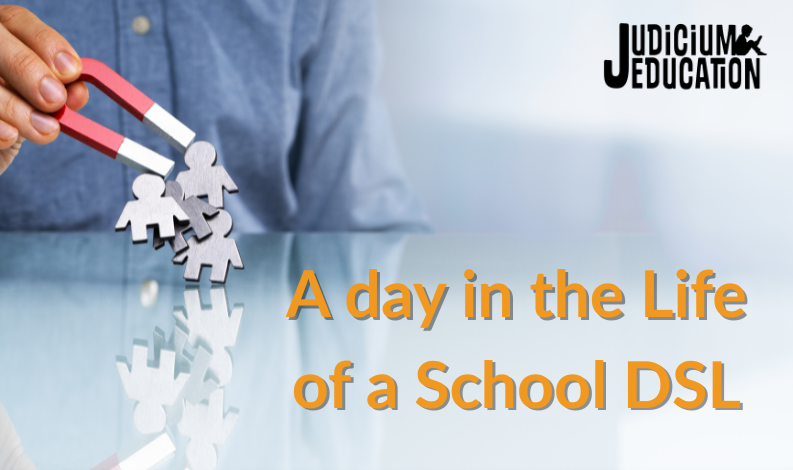
This blog is based on Judicium’s Safeguarding ‘Sofa Session’ from the 15th of November, with our resident expert Helen King. This session focused on what early help is, how to consider mapping the early help provision locally, how best to signpost to early help, and training staff to have an understanding of the early help offer locally.
Poll 1
What is Early Help?
Early help provision has come under some scrutiny in recent years which has impacted the updated working together guidance and work at LA level.
In February 2022 Ofsted published a ‘research in practice’ paper titled ‘what is early help? Concepts, policy directions and multi-agency perspectives.’ It highlighted key issues with funding and the impact of this. For example, there has been a 23% reduction in funding to local authority children and young people’s services (approx. £2.3 billion) between 2010-11 and 2018-19.
It is exacerbated in the most deprived areas where the funding fell twice as fast, which impacted resourcing through the LA for early help interventions and has, at times, meant thresholds have fluctuated. This is reflected in our conversations with schools.
The paper also looked at the early help offer from schools:- The review scanned school websites describing their early help offer noting a marked variation between individual schools in how early help is conceptualised- or at least, in how it is described.
- DSLs commonly lead on early help and family support. Some schools describe it within the safeguarding framework whilst some emphasise a collaborative approach through roles like a family support worker or Family Liaison Officer.
- Interestingly, there was evidence to suggest that DSLs do not receive specialist training in key areas that affect children in need of early help – such as neglect, mental ill health, parental substance misuse, domestic violence, or sexual abuse. Where training was valued, it focused on working with parents.
We have seen these trends in the work and conversations we have with schools and Trusts. We find leaders have a lack of clarity over what early help is, the school’s role within this and how best to utilise it, particularly in a landscape of reduced funding.
In terms of a formal definition, the draft version of Working Together to Safeguarding Children 2023 defines early help as:- “Support for children of all ages that improves a family’s resilience and outcomes or reduces the chance of a problem getting worse…”
Some of this early help is delivered through ‘universal services’ such as education and health services, so called because they are available to all families, regardless of their needs.
Other early help services are coordinated by a local authority and/or their partners to address specific concerns within a family, e.g., parenting support, mental health support, and housing and employment services.
Early help may be appropriate for children and families who have several needs, or whose circumstances make them more vulnerable. It’s a voluntary approach, requiring the family’s consent, and may be provided before and/or after statutory intervention.
Mapping the Early Help Provision Locally
Firstly, it is important to get an understanding of what early help encompasses. The DfE and Department for Levelling Up, Housing and Communities published the Early Help System Guide in February 2022 as a tool for agencies to consider. This categorised an early help system including three different areas:
-
Community support which includes family and friends, local places and environments, online support services, voluntary, faith and community services, etc.
-
Universal services which includes post-16 education, schools, early years settings, family hubs, children’s centres and youth centres, GP surgeries, libraries, and a variety of health services etc.
-
Acute and targeted services which include family support, social care, accident and emergency departments, mental health services, special education needs support services, jobcentre plus, school attendance and exclusion support, domestic abuse services, alternative provision, housing services, police, probation and prison services, family court and family court advisory services, substance misuse services etc.
Within the early help system, schools form part of the universal services available to families.
What forms part of your early help offer?
- Attendance intervention internally
- Behaviour support through internal or traded services
- Family Support Worker, Family Liaison Officer or similar role
- Parent groups for students with SEND or a particular need
- Counselling or ELSA support
- Interventions to support with individuals or groups e.g., SLCN, therapeutic intervention.
Poll 2

The next stage of early help intervention comes through joined up working. In the updated draft Working together to safeguard Children 2023 guidance, it states that where a child and family would benefit from co-ordinated support from more than one organisation or agency there should be a multiagency assessment. It outlines what this should entail but essentially, it should include the agreement of the family, the practitioners, and the voice of the child.
These initiatives have been commonly identified in local early help systems as:- children’s centres and family hubs
- parenting programmes, groups, and classes
- targeted family support in the home to improve family functioning (for example, relationship support for parents, mentoring schemes or behaviour change programmes)
- youth services, including specialist adolescent services and support for participation in education or training
- social, emotional, and mental health programmes and practical support
- preventative help or support for emerging substance use issues or domestic abuse concerns
It's important to know that for such interventions a lead practitioner is identified, and the family have a say in selecting this person. The lead practitioner is responsible for co-ordinating the group of professionals. In some situations, a member of the school such as the DSL or SENDCO could be identified as the lead practitioner.
We advise the following:
- Ensure that DSLs and deputies have received training on specific safeguarding issues which could benefit from early help – such as neglect, mental ill health, parental substance abuse, domestic violence, or sexual abuse.
- Consider what the early help offer is within your setting and map this.
- Consider how this is shared with parents, children, and staff e.g., website or leaflet
- Consider what section of the website it features in i.e., perhaps separate from child protection or more acute messages and trying to personalise it with pictures of key people etc.
- Consider what early help is available through the local authority and how multi-agency assessments take place.
- Understand what the lead practitioner role is and that a member of school staff could be well-placed to do this role and may be the first choice of a family.
How Best to Signpost to Early Help
The aforementioned research in practice paper found where a family has received an assessment from children’s social care, they were less likely to engage with early help if the assessment didn’t lead to intervention.
Where families were stepped down from plans, it was not always clear where ongoing early help work would sit.
Half of serious case reviews relate to children whose families were just below the threshold for children’s social care, many of them previously unknown to statutory services.
Thus, early help is integral in supporting families early on to reduce situations getting worse. It is also more likely to be considered by a family when it has come before more acute forms of intervention.
Consider the following:
- How do you identify those requiring early help? KCSIE defines categories for consideration on this, do you know these? And have you had training in these specific areas to support your own understanding and confidence?
- Have you got a handle on which students are receiving internal support, e.g., early help within the school? The best practice we have seen in this area is the school considering their own tiered approach of intervention and mapping this, somewhat like the LA threshold document but internal.
- How are students identified for support internally and is it comprehensively mapped, e.g., does it cover emotional health, behaviour concerns, attendance concerns or learning needs?
- Who works with families in this area? What other roles do they have? For example, does it go through a family liaison worker or through the Deputy Head in charge of behaviour and safeguarding?
- The buy-in may be easier if it is coming from a role within the school whose title indicates support or working with families.
- Can key staff members support in this area who have strong relationships with particular families?
- If you have been working with a family around a certain concern, it might be easier to broach additional support as part of that review process and therefore the transition feels natural if more support is required.
- How do you signpost or publicise this to families? Utilise parents’ evenings, website, leaflet, coffee mornings, etc.
If you can refine your systems so that they are tiered, clearly defined, and commonly understood, and then underpinned by specific training in key areas of concern then you should have a robust system in place internally which will then support accessing support externally.
Training Staff to have an Understanding of the Early Help Offer Locally
KCSIE references early help 36 times, the majority of these featuring in part 1, what all staff need to know.
Paragraph 8 of KCSIE states that ‘all staff should be prepared to identify children who may benefit from early help’ followed in paragraph 15 with ‘all staff should be aware of their local early help process and understand their role in it’.
When Judicium survey staff regarding safeguarding, we have found this question is overwhelmingly the one staff demonstrate the least confidence in. If that is the case, you can remedy it.
It will be easier once you feel confident and secure in what is on offer within your school and then what is on offer locally.
If you are not sure what this looks like within the local authority, don’t be afraid to ask. Working Together states that this information should be readily available to families and clear to understand and navigate – feel empowered to ask in order to plug any gaps.
Judicium has found that staff don’t understand what early help is, but when we explain it, they can often discuss early help internally but not externally. We would suggest the following steps:
- Ensure staff understand the terminology of early help and what it is.
- Use para 20 of KCSIE and the list of concerns which might suggest a child may benefit from early help to equip staff with what to look out for.
- Map for staff the support you offer around early help internally and explain how this aims to support families swiftly to prevent further or more acute forms of intervention. Explain how they can interact with this.
- Share the LA offer, as they are less likely to directly interact with it, more work may be needed to support with understanding and retention. Complete some scenario training with staff so that they understand how this works in practice.
- Remember to revisit early help with staff either through briefings or through quizzing.
Early Help Best Practice Suggestions from Live Sessions
- Utilising the Mental Health Support Team (where the school has access to this)
- Behaviour support services (traded or offered through the LA)
- Funding breakfast clubs or after-school provision.
- Community partnerships with your local food bank, library, or community groups.
- Identifying students who might benefit from peer mentoring
- Young Carers groups
- Family evening events such as bingo or community events
- Holding an informal parent support group
You can follow us on Twitter: @JudiciumSG @JudiciumEDU
Safeguarding eLearning Courses
The Safeguarding Team can also deliver bespoke, onsite training at your school. Prices start from £495+VAT for 2 hours covering one of the following: Governor training, Safer Recruitment, DSL or All Staff.
If you’d like to review Judicium’s forthcoming sofa sessions please click here
© This content is the exclusive property of Judicium Education. The works are intended to provide an overview of the sofa session you attend and/or to be a learning aid to assist you and your school. However, any redistribution or reproduction of part or all of the contents in any form is prohibited. You may not, except with our express written permission, distribute or exploit the content. Failure to follow this guidance may result in Judicium either preventing you with access to our sessions and/or follow up content.
Related content

This blog deep dives into the everyday life of a Multi Academy Trust (MAT) Designated Safeguarding Lead (DSL). For a DSL, every decision echoes across schools, staff, and pupils. It’s a responsibility that requires a steady hand, sharp focus, and unshakable resolve. With over 22,000 multi-academy trusts in the UK, the role of a MAT DSL has become increasingly serious.

Volume 2 of our ‘A Day in the Life of a DSL’ series takes a deeper dive into the role of the Designated Safeguarding Lead (DSL) within schools. For many DSLs, the reality involves navigating unpredictable, emotionally charged situations that require immediate action. Their role isn’t about ticking boxes — it’s about making decisions that can profoundly impact a child’s life.

This is a summary taken from Judicium’s DPO ‘Sofa Session’ from 2nd of April, with Helen King and Sofia Mastrangelo. This session focused on the guidance on sharing safeguarding data and concerns, retention rules, and managing SARs in relation to safeguarding and considering exemptions.

This blog is based on Judicium’s Safeguarding & HR TRA and DBS referrals demystified ‘Sofa Session’ from the 29th January 2025, with our resident experts Sarah Cook and Jenny Salero.

In this blog, Helen King, Head of Safeguarding at Judicium Education shares her thoughts on the key trends that schools must look out for in 2025 and provides actionable advice and guidance in a Q&A style format.
.png)
This blog is based on Judicium’s Safeguarding ‘Sofa Session’ from the 27th November with our resident expert Joanne Bocko.


.png)
Safeguarding